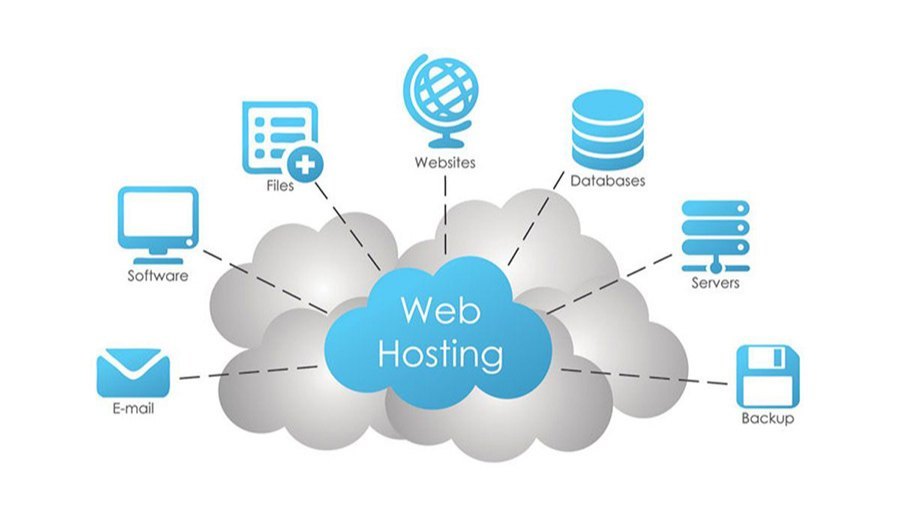Every website tells a story, not just through content, but through how quickly and reliably it delivers that content to visitors. Imagine two companies offering the same service online. One has a site that loads instantly, never crashes, and keeps user data secure. The other struggles with downtime, slow pages, and interruptions during key interactions. Over time, users notice. Search engines notice. And the company with weaker hosting gradually slips in search rankings, losing visibility and potential clients. For B2B businesses, this isn’t hypothetical. Website Hosting Service in St. Louis quality directly affects both user experience and SEO performance.
Fast, reliable websites keep visitors engaged, improve search engine visibility, and help maintain a professional reputation. Slow or unreliable hosting frustrates users, increases bounce rates, and can even harm search rankings over time.
This guide explores how hosting impacts SEO, why speed and reliability matter, and practical strategies to optimize your website for both users and search engines.
How Hosting Impacts SEO
Search engines evaluate multiple signals when determining rankings, and hosting affects several critical factors:
1. Page Load Speed
Websites hosted on high-performance servers load faster, keeping users engaged. Slow page load times increase bounce rates, signal poor user experience to search engines, and can lead to lower rankings.
Hosting solutions with optimized servers, caching, and sufficient resources reduce delays and provide a smoother experience.
2. Uptime and Availability
Frequent downtime prevents search engines from crawling pages consistently, which can negatively impact indexing and rankings. Reliable hosting ensures your site is available 24/7, allowing both users and search engines to interact with your website without interruption.
3. Security and Trust
Search engines favor secure sites. Hosting solutions that provide SSL certificates, firewalls, and security updates help protect user data. A secure site not only boosts SEO but also builds trust with clients, increasing engagement and conversions.
4. Server Location and Latency
The physical location of your server can affect load times for users in different regions. Hosting close to your target audience reduces latency, improves page speed, and enhances local SEO performance.
5. Scalability During Traffic Spikes
Traffic surges during product launches, campaigns, or seasonal demand can overwhelm servers. Hosting that scales ensures performance remains consistent, preventing user frustration and search engine penalties due to slow response times.
The Connection Between Hosting and User Experience
SEO is about more than rankings, it’s about satisfying user intent. Hosting affects how users perceive your website:
- Fast, responsive sites keep visitors exploring your content rather than bouncing.
- Reliable accessibility ensures clients can submit forms, access portals, or make purchases without interruptions.
- Secure interactions protect sensitive information and encourage repeat visits.
Real-World Examples
Consider these practical scenarios illustrating how hosting affects both SEO and users:
- A B2B software company launches a new dashboard. Users experience slow load times due to inadequate hosting. Bounce rates rise, engagement drops, and the new dashboard pages fail to rank well on search engines.
- An industrial supplier hosts their product catalog on a low-tier server. During a seasonal spike, the site crashes repeatedly. Not only do clients get frustrated, but search engines detect downtime and start ranking other competitor pages higher.
- A professional services firm migrates to a distant server without considering regional latency. Local clients experience delays, and search engines reduce the site’s visibility in local search results.
These real-word analogy demonstrate that hosting decisions directly influence both user satisfaction and SEO performance, making it a critical investment for B2B companies.
Strategies for Hosting That Supports SEO
Businesses can take proactive steps to ensure hosting contributes positively to both user experience and search rankings:
1. Choose a High-Performance Provider
Evaluate uptime history, server speed, and infrastructure redundancy. Reliable providers reduce the risk of downtime and slow page loads, keeping both clients and search engines happy.
2. Monitor Performance Continuously
Use monitoring tools to track server response times, page load speeds, and downtime. Real-time alerts allow immediate intervention before users are affected and search engines notice issues.
3. Optimize Security Measures
Implement SSL certificates, firewalls, and regular security updates. A secure website protects users and boosts SEO performance, as search engines prefer sites that safeguard client data.
4. Plan for Scalability
Ensure hosting can accommodate traffic surges. Cloud hosting or scalable solutions allow automatic resource allocation during high-demand periods, maintaining page speed and uptime.
5. Regular Backups and Recovery
Keep frequent backups and test recovery procedures. Quick restoration minimizes downtime, preserving both user experience and SEO signals.
Measuring the Impact
To understand how hosting affects SEO, track:
- Page Speed Metrics: Faster pages reduce bounce rates and improve rankings.
- Uptime Statistics: Frequent outages can lead to decreased search visibility.
- User Engagement Data: Monitor conversions, form submissions, and portal activity to gauge impact.
- Organic Traffic Trends: Drops in traffic may indicate hosting-related performance issues affecting SEO.
Regular monitoring ensures hosting decisions support your SEO and user engagement goals.
Hosting as a Competitive Advantage
In competitive B2B industries, hosting can differentiate your brand. Websites that load quickly, remain secure, and scale reliably provide a superior experience, enhancing client trust and retention. Search engines reward these factors, improving visibility and driving more qualified traffic.
Investing in the right hosting solution bridges operational reliability with digital performance. It protects your reputation, improves user engagement, and positions your business for sustainable growth.
Conclusion
Every second matters when it comes to user experience and search engine rankings. Slow load times, downtime, and security lapses not only frustrate clients but also hinder SEO performance, reducing visibility and business opportunities.
Partnering with a Website Hosting Service in St. Louis ensures your site is fast, reliable, and secure. By investing in hosting that supports both users and search engines, businesses can protect client interactions, maintain high rankings, and establish a strong digital foundation for long-term success.
 WhatsApp Us Now
WhatsApp Us Now







